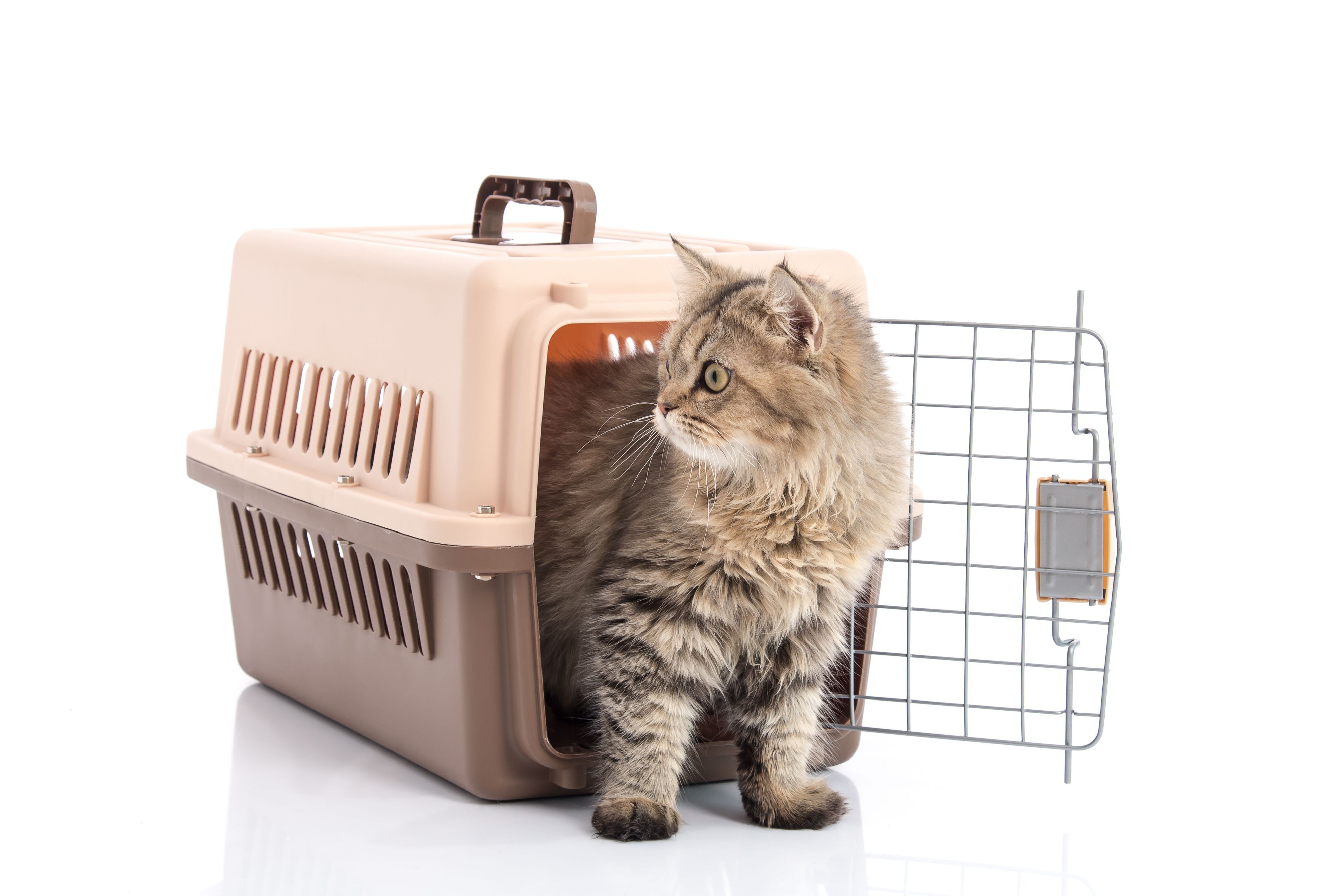New drug for reducing feline fear and anxiety is commercially launched
Pregabalin oral solution (Bonqat; Zoetis) is indicated for use in cats during travel and veterinary visits.
Photo: Adobe Stock

A novel therapy for treating fear and anxiety in felines has been commercially launched. Pregabalin oral solution (Bonqat; Zoetis) is now available to veterinary clinics throughout the US and can be obtained by cat owners with a prescription from a veterinarian.1
Pregabalin oral solution is indicated for the alleviation of feline acute anxiety and fear associated with transportation and veterinary visits. The liquid DEA Schedule Class V drug was approved by the FDA in November 2023.1,2
“Maintaining routine checkups is essential to cats’ overall health, yet only 40% of cats visit the veterinarian annually, compared to 82% of dogs. The stress of veterinary visits on cats and their owners can prevent cats from receiving the care they need,” Tara Bidgood, DVM, PhD, DACVCP, vice president, veterinary professional services and medical affairs for US Petcare at Zoetis, said in a news release.1 “Bonqat offers a unique solution to cat care because it not only makes it easier for pet owners to get cats to their veterinarian but also serves as a catalyst for cats to receive more comprehensive care once at the clinic, including diagnostics and preventive care for fleas, parasites and vaccinations.”
A study on the perception of cat stress found that many felines suffer from anxiety and fear related to travel and veterinary visits. In the study, 59% of cats were reported to have exhibited signs of distress during car travel and 66% of cats exhibited signs of stress during veterinary visits.3 Common signs of acute anxiety and fear can range from subtle to severe and include freezing, hiding, vocalizing, tail flicking, increased breathing and panting, restlessness, hissing, scratching and biting.4
If untreated, acute anxiety and fear may worsen with subsequent experiences, which can compound the distress of being placed into a carrier and being transported to and from the clinic. According to Zoetis, anxiety and fear may reduce a patient’s chance of receiving a comprehensive physical exam.5
A pet’s stress and anxiety also have an effect on clients. More than half of cat owners reported feeling anxious about veterinary visits and associated travel because of their pets’ stress, according to Margaret E. Gruen, DVM, MVPH, PhD, DACVB, associate professor of behavioral medicine at North Carolina State University in Raleigh. “Removing these barriers can help cultivate a more positive and productive veterinary experience for both cats and their owners by focusing on cats’ general well-being rather than the anxiety of the visit itself, which can also help maintain the unique human-animal bond,” Gruen said in the release.1
Pregabalin oral solution is administered orally to cats by their owners and can be mixed with food. It is indicated for administration as a single dose of 5 mg/kg (0.1mL/kg) approximately 1.5 hours before the start of the transportation or veterinary visit and can be given on 2 consecutive days.1,2 In a field study conducted in Finland, adverse reactions related to pregabalin oral solution included mild sedation, ataxia and lethargy, according to the FDA.2
Additionally, the FDA recommends those handling pregabalin oral solution take precautions such as avoiding contact with an individual’s skin, eyes and other mucus membranes. Humans exposed to pregabalin should seek medical advice and may experience dizziness, sleepiness, blurred vision, weakness, dry mouth, and difficulty with concentration or attention.2
References
- Zoetis is redefining the feline veterinary experience with the commercial launch of Bonqat (pregabalin oral solution) in the U.S. News release. Zoetis. April 15, 2024. Accessed April 22, 2024. https://www.zoetisus.com/news-and-media/zoetis-is-redefining-the-feline-veterinary-experience-with-the-commercial-launch-of-bonqat
- Novel therapy for treating anxiety and fear in cats receives FDA approval. dvm360. November 18, 2023. Accessed April 22, 2024. https://www.dvm360.com/view/novel-therapy-for-treating-anxiety-and-fear-in-cats-receives-fda-approval
- Mariti C, Guerrini F, Vallini V, et al. The perception of cat stress by Italian owners. J Vet Behav. 2017;20:74-81. doi:10.1016/j.jveb.2017.04.002
- Ellis SLH. Recognizing and assessing feline emotions during the consultation: History, body language and behavior. J Fel Med Surg. 2018;20(5):445-456
- Mariti C, Bowen JE, Campa S, Grebe G, Sighieri C, Gazzano A. Guardians’ perceptions of cats’ welfare and behavior regarding visiting veterinary clinics. J Appl Anim Welf Sci. 2016 19(4) 375-384